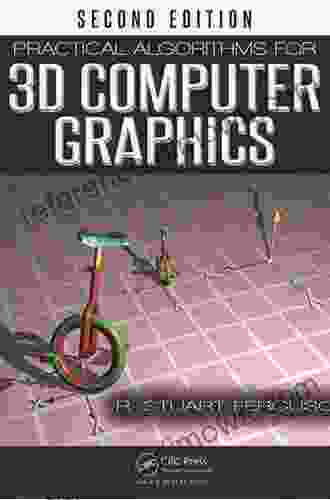Living With Skin Conditions: A Teen's Guide to Understanding and Managing Skin Problems

Adolescence is a time of transition and change, both physically and emotionally. For many teens, this can also be a time of skin problems. Acne, eczema, psoriasis, rosacea, and vitiligo are just a few of the skin conditions that can affect teenagers. While these conditions can be frustrating and embarrassing, they can also be managed with proper care. This guide will provide you with the information you need to understand and manage your skin condition so that you can feel confident and comfortable in your own skin.
Common Skin Conditions
Acne is the most common skin condition in teenagers. It is caused by a combination of factors, including hormones, bacteria, and clogged hair follicles. Acne can range from mild to severe, and it can cause a variety of pimples, including blackheads, whiteheads, pustules, and cysts. Acne is usually treated with topical medications, oral medications, or a combination of both. Severe acne may require treatment with lasers or other cosmetic procedures.
5 out of 5
| Language | : | English |
| File size | : | 1713 KB |
| Text-to-Speech | : | Enabled |
| Word Wise | : | Enabled |
| Print length | : | 186 pages |
| Screen Reader | : | Supported |
Eczema is a chronic skin condition that causes dry, itchy, and inflamed skin. It is often associated with allergies and asthma. Eczema can be treated with topical medications, oral medications, or phototherapy. There is no cure for eczema, but it can be managed with proper treatment.
Psoriasis is a chronic skin condition that causes red, scaly patches of skin. It is caused by an overactive immune system. Psoriasis can be treated with topical medications, oral medications, or phototherapy. There is no cure for psoriasis, but it can be managed with proper treatment.
Rosacea is a chronic skin condition that causes redness, flushing, and pimples on the face. It is often triggered by sunlight, heat, or certain foods. Rosacea can be treated with topical medications, oral medications, or laser therapy. There is no cure for rosacea, but it can be managed with proper treatment.
Vitiligo is a chronic skin condition that causes white patches of skin. It is caused by a loss of pigment in the skin. Vitiligo can be treated with topical medications, oral medications, or phototherapy. There is no cure for vitiligo, but it can be managed with proper treatment.
Managing Your Skin Condition
The best way to manage your skin condition is to follow your doctor's instructions carefully. Your doctor may recommend a variety of treatments, including topical medications, oral medications, or phototherapy. It is important to follow your doctor's instructions exactly, even if you do not see results immediately. It may take some time for your treatment to work.
In addition to following your doctor's instructions, there are a few things you can do to help manage your skin condition on your own. These include:
- Avoiding triggers: If you know what triggers your skin condition, avoid them as much as possible. For example, if you have eczema, avoid harsh soaps and detergents.
- Using gentle skincare products: Use products that are designed for your skin type. Avoid harsh soaps, detergents, and other products that can irritate your skin.
- Moisturizing regularly: Keep your skin moisturized to prevent dryness and irritation.
- Eating a healthy diet: Eating a healthy diet can help to improve your overall health and well-being, which can also benefit your skin.
- Getting enough sleep: Getting enough sleep can help to reduce stress, which can also benefit your skin.
Coping with the Emotional Impact of Skin Conditions
Skin conditions can have a significant impact on your self-esteem and confidence. You may feel embarrassed or self-conscious about your skin, and you may worry about how others perceive you. These feelings are normal, but it is important to remember that you are not alone. Many people with skin conditions have the same feelings. There are ways to cope with the emotional impact of a skin condition. These include:
- Talking to someone: Talking to a trusted friend, family member, or therapist can help you to feel less alone and more supported. Sharing your feelings can also help you to process your emotions and develop coping mechanisms.
- Joining a support group: Joining a support group can connect you with other people who have skin conditions. This can help you to feel more supported and understood.
- Focusing on your strengths: Instead of dwelling on your skin condition, focus on your strengths. What are you good at? What do you enjoy ng? Focusing on your positive qualities can help you to feel better about yourself.
- Challenging negative thoughts: When you have negative thoughts about your skin condition, challenge them. Ask yourself if there is any evidence to support your thoughts. Are you really as ugly or unlovable as you think you are? Chances are, the answer is no.
Skin conditions can be frustrating and embarrassing, but they can be managed. With proper care and support, you can learn to live with your skin condition and feel confident and comfortable in your own skin.
This guide has provided you with the information you need to understand and manage your skin condition. If you have any questions or concerns, please talk to your doctor or dermatologist.
You are not alone. Many people with skin conditions have the same feelings. There are ways to cope with the emotional impact of a skin condition. With proper care and support, you can learn to live with your skin condition and feel confident and comfortable in your own skin.
Additional Resources
- American Academy of Dermatology
- National Eczema Association
- National Psoriasis Foundation
- National Rosacea Society
- Vitiligo Foundation
5 out of 5
| Language | : | English |
| File size | : | 1713 KB |
| Text-to-Speech | : | Enabled |
| Word Wise | : | Enabled |
| Print length | : | 186 pages |
| Screen Reader | : | Supported |
Do you want to contribute by writing guest posts on this blog?
Please contact us and send us a resume of previous articles that you have written.
 Book
Book Novel
Novel Page
Page Chapter
Chapter Text
Text Story
Story Genre
Genre Reader
Reader Library
Library Paperback
Paperback E-book
E-book Magazine
Magazine Newspaper
Newspaper Paragraph
Paragraph Sentence
Sentence Bookmark
Bookmark Shelf
Shelf Glossary
Glossary Bibliography
Bibliography Foreword
Foreword Preface
Preface Synopsis
Synopsis Annotation
Annotation Footnote
Footnote Manuscript
Manuscript Scroll
Scroll Codex
Codex Tome
Tome Bestseller
Bestseller Classics
Classics Library card
Library card Narrative
Narrative Biography
Biography Autobiography
Autobiography Memoir
Memoir Reference
Reference Encyclopedia
Encyclopedia Leonard Lueras
Leonard Lueras Abraham Rodriguez
Abraham Rodriguez Jeff Hill
Jeff Hill Jenny Oldfield
Jenny Oldfield S Andrea Milne
S Andrea Milne A R Lowe
A R Lowe Aaron J Crawford
Aaron J Crawford Lisa Mckay
Lisa Mckay Joan L Coffey
Joan L Coffey Jeff Kolby
Jeff Kolby Ajme Williams
Ajme Williams Geraldine Burrows
Geraldine Burrows Abigail Rutherford
Abigail Rutherford Adam Lee
Adam Lee Abigail Boyd
Abigail Boyd Jeanine Michna Bales
Jeanine Michna Bales Cookie O Gorman
Cookie O Gorman Diane Adams
Diane Adams Stevyn Colgan
Stevyn Colgan Terri Grace
Terri Grace
Light bulbAdvertise smarter! Our strategic ad space ensures maximum exposure. Reserve your spot today!
 Jared PowellFollow ·3.6k
Jared PowellFollow ·3.6k Jared NelsonFollow ·17.3k
Jared NelsonFollow ·17.3k Elliott CarterFollow ·18.4k
Elliott CarterFollow ·18.4k Barry BryantFollow ·19.7k
Barry BryantFollow ·19.7k Derek BellFollow ·16.8k
Derek BellFollow ·16.8k William FaulknerFollow ·11.9k
William FaulknerFollow ·11.9k Juan ButlerFollow ·5.1k
Juan ButlerFollow ·5.1k Jamie BlairFollow ·2.7k
Jamie BlairFollow ·2.7k

 Julio Cortázar
Julio CortázarShift Your Perspective, Seize Your Potential, Own Your...
A Transformative Guide to...

 Isaias Blair
Isaias BlairPractical Algorithms For 3d Computer Graphics: Unlocking...
In the realm of digital artistry, 3D computer...

 Joseph Heller
Joseph HellerClear Vision Through Cloudy Eyes: A Guide to Overcoming...
Have you ever felt...

 Leo Tolstoy
Leo TolstoyThe True Story of My Fairygodparent Who Almost Killed Me...
Book Description In this captivating...

 Earl Williams
Earl WilliamsCanada 10 Must Visit Locations: A Captivating Journey...
Prologue: A...
5 out of 5
| Language | : | English |
| File size | : | 1713 KB |
| Text-to-Speech | : | Enabled |
| Word Wise | : | Enabled |
| Print length | : | 186 pages |
| Screen Reader | : | Supported |














